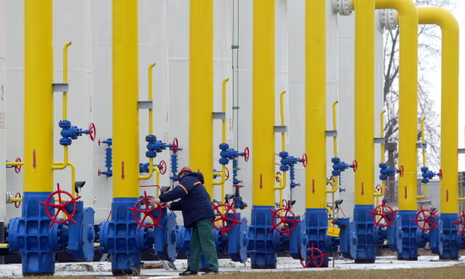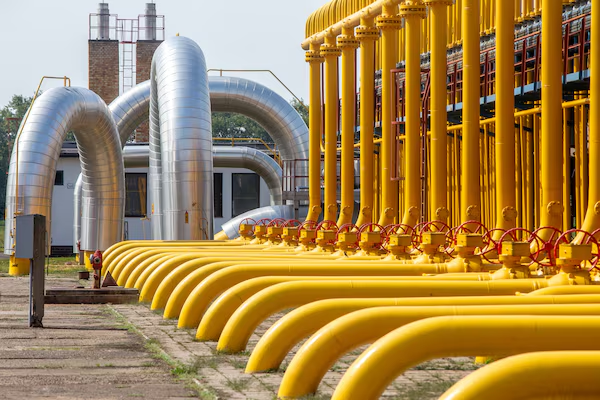Europe’s reliance on Russian natural gas through Ukraine, a key energy supply route for decades, will officially end on January 1, 2024, as the transit agreement between the two nations expires. The deal, which once generated billions in revenue for Moscow and transit fees for Kyiv, marks the closure of Russia’s oldest gas supply route to Europe.

The termination of the gas transit route underscores Europe’s decisive shift away from Russian energy following Moscow’s annexation of Crimea in 2014 and its 2022 invasion of Ukraine. The European Union has intensified efforts to diversify its energy sources, including increased imports of liquefied natural gas (LNG) from Qatar and the United States, and piped supply from Norway.
Gazprom, Russia’s state-controlled energy giant, recorded a $7 billion loss in 2023—its first since 1999—amid declining exports to Europe and efforts to boost sales to China.
Countries still receiving Russian gas via Ukraine, including Slovakia and Austria, have secured alternative sources. Austria’s energy ministry confirmed that purchases through Italy and Germany, coupled with storage reserves, ensure uninterrupted supply. Similarly, Slovakia expects no shortages but will incur an additional €177 million ($184 million) in fees for rerouted supplies, according to its Economy Ministry.
Anna-Kaisa Itkonen, a European Commission spokeswoman, highlighted the bloc’s strategic measures to reduce dependency on Russian gas. “The European gas infrastructure is flexible enough to provide non-Russian gas to Central and Eastern Europe via alternative routes. New LNG import capacities have significantly reinforced the system since 2022,” she said.

Market analysts predict limited impact on European gas prices, as the volumes transiting Ukraine have significantly declined. Data from Ukraine’s gas transit operator on Tuesday confirmed that no requests for gas flows through the Ukrainian pipeline to Europe had been made for January 1.
European benchmark gas prices ended Tuesday at €48.50 per megawatt hour, showing only a marginal increase. Analysts note that the termination of the transit deal is unlikely to replicate the gas price surge seen in 2022.
The cessation of Russian gas transit through Ukraine will have financial repercussions for both nations. Ukraine stands to lose approximately $800 million annually in transit fees, while Gazprom will forfeit nearly $5 billion in sales revenue.
Meanwhile, Moldova, a former Soviet state heavily reliant on Russian gas, has announced plans to reduce gas consumption by a third to cope with the changes.
Russia, once a dominant player in Europe’s energy market with a peak share of 35%, has seen its presence eroded. Key routes such as the Yamal-Europe pipeline via Belarus and Nord Stream across the Baltic Sea were shut down, with the latter damaged in 2022.
In 2018, Russian pipelines delivered a record 201 billion cubic meters (bcm) of gas to Europe. By 2023, volumes via Ukraine had plummeted to 15 bcm, down from 65 bcm at the start of the last five-year contract in 2020.
The only remaining Russian gas route to Europe is TurkStream, which crosses the Black Sea to Turkey and supplies markets including Hungary and Serbia.


